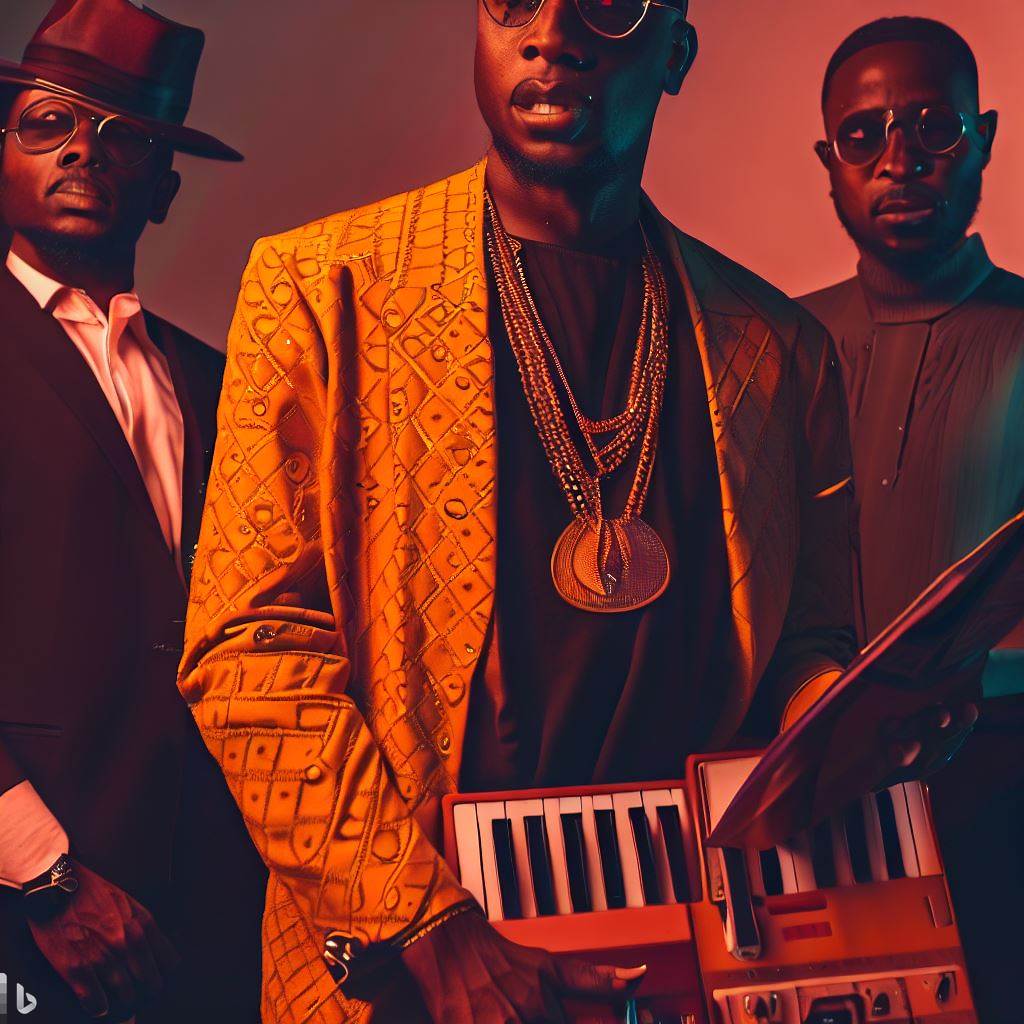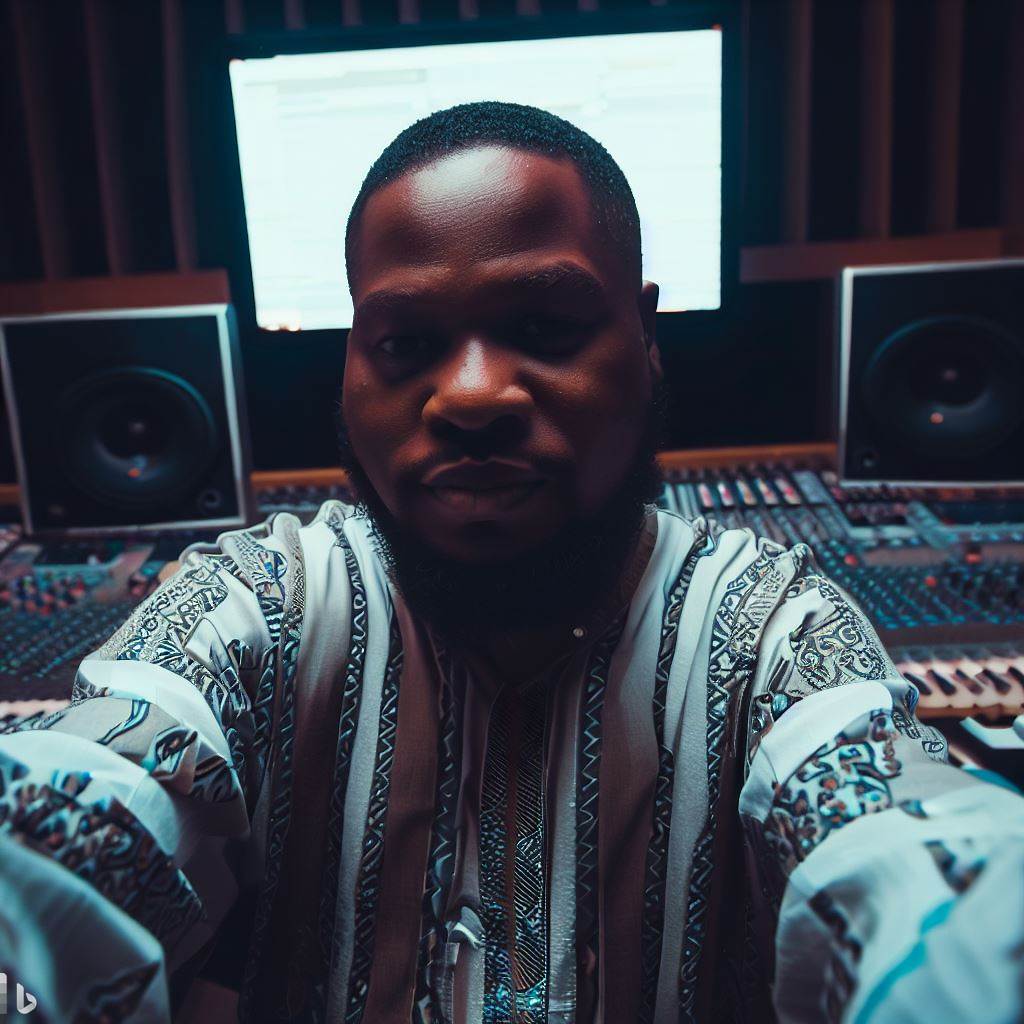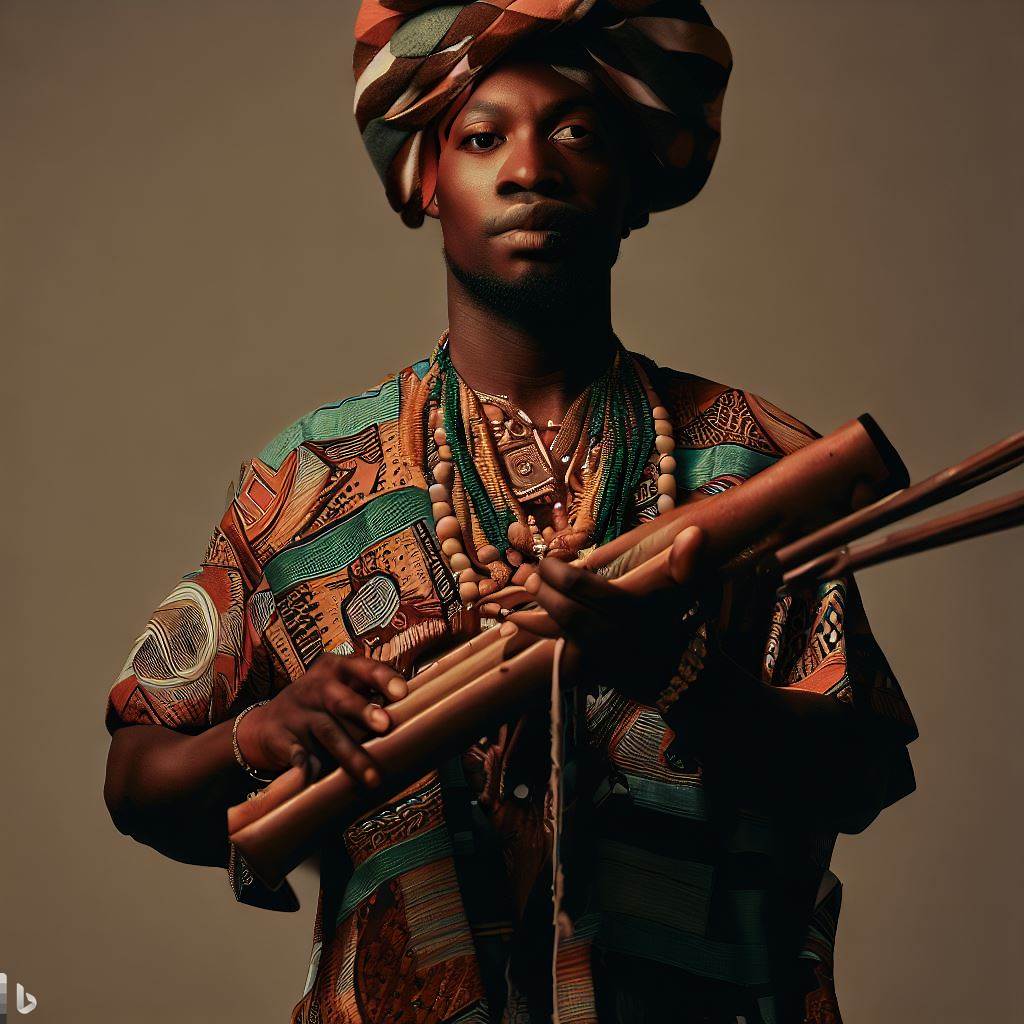Introduction
Nigerian music industry growth
The Nigerian music industry has witnessed remarkable expansion and development in recent years.
With a rich cultural heritage, Nigeria has become one of the leading countries in the African music scene.
Nigerian artists, such as Fela Kuti, King Sunny Ade, and recent stars like Wizkid and Davido, have gained international recognition and have contributed to the growth of the industry.
Importance of music director Nigeria
However, behind the scenes, music directors have had a profound impact on the success and evolution of Nigerian music.
These individuals, with their knowledge and expertise, have helped craft and mold the Nigerian music scene into what it is today.
They act as the creative force behind the music, collaborating with artists, producers, and songwriters to create compelling pieces.
Nigerian music directors have significantly influenced and shaped various genres of music
Music directors are responsible for selecting the right producers, instrumentalists, and vocalists to bring a song to life.
They have a keen understanding of various music genres and are able to blend different elements to create unique sounds.
Their influence can be seen in the diverse range of music genres that have emerged from Nigeria, including Afrobeat, Afropop, Highlife, Juju, Fuji, and many more.
Nigerian music directors play a vital role in the growth and development of the music industry.
Their expertise and creative guidance have influenced various genres of music, making Nigeria a powerhouse in the African music scene.
This blog section will delve deeper into the significant contributions and influence of Nigerian music directors on different music genres.
Definition of Nigerian Music Directors
Explanation of music directors’ role in the industry
In the Nigerian music industry, music directors play a crucial role in shaping the creative direction and visual representation of songs.
They are responsible for translating the artist’s vision into a visually captivating music video.
Distinction between music directors and musicians
While musicians focus on creating and performing music, music directors focus on the conceptualisation and execution of the visual elements that accompany the music.
Overview of the skills and expertise required to be a music director in Nigeria
Being a music director in Nigeria requires a diverse set of skills and expertise.
Firstly, a deep understanding of various music genres is essential.
This allows directors to tailor their creative vision to match the specific genre of each song.
Secondly, technical skills in videography, cinematography, and editing are crucial.
Music directors need to have a keen eye for aesthetics and be able to use different camera angles, lighting techniques, and post-production tools to create visually appealing music videos.
In addition to technical skills, music directors in Nigeria must have excellent communication and leadership abilities.
They need to effectively collaborate with artists, producers, and other creative professionals to bring a song’s vision to life.
Furthermore, music directors should possess a strong sense of storytelling.
They must be able to convey the emotions, ideas, and messages behind a song through visual storytelling techniques.
This helps create a deeper connection between the audience and the music.
Lastly, staying up-to-date with industry trends and having a creative and innovative mindset are essential for Nigerian music directors.
They need to constantly push boundaries and think outside the box to create groundbreaking music videos that captivate and engage the audience.
Nigerian music directors are instrumental in shaping the visual representation of music in the industry.
They bring artists’ creative visions to life through their skills in videography, storytelling, communication, and leadership.
The role of a music director is distinct from that of a musician, as they focus on the visual elements that enhance the overall music experience.
With their expertise and innovative mindset, music directors in Nigeria continue to push boundaries and contribute to the evolution of music genres.
Read: Nollywood and Animation: An Unfolding Narrative
Afrobeat Genres and their Influential Music Directors
Introduction to Afrobeat as a popular Nigerian genre
Afrobeat is a highly influential music genre that originated in Nigeria.
This genre combines elements of traditional Nigerian music, jazz, and funk, creating a unique and energetic sound.
Afrobeat has gained popularity not only in Nigeria but also worldwide, captivating audiences with its infectious rhythms and political lyrics.
Fela Kuti as a pioneer and influential music director in Afrobeat
Fela Kuti, often referred to as the father of Afrobeat, played a significant role in shaping and popularizing this genre.
His unique fusion of traditional Nigerian sounds with jazz and funk created a revolutionary and dynamic style.
Kuti’s music was not only entertaining, but it also carried important social and political messages, advocating for change and justice.
His charisma and powerful performances made him a prominent figure and an inspiration for future generations of Nigerian musicians.
Femi Kuti and their impact on Afrobeat’s evolution
Femi Kuti, Fela Kuti’s son, has carried his father’s legacy forward and made significant contributions to the evolution of Afrobeat.
He has added modern elements to the genre, incorporating hip-hop, reggae, and electronic music.
Femi Kuti’s music continues to address socio-political issues, giving a voice to the oppressed and marginalized.
His artistic maturity and dedication to his craft have established him as one of the most influential music directors in Afrobeat today.
Other music directors contributing to Afrobeat’s growth
Aside from Fela and Femi Kuti, there are several other music directors who have played a crucial role in the growth and diversification of Afrobeat.
Tony Allen, Fela Kuti’s longtime drummer, has been instrumental in creating the trademark Afrobeat rhythm.
Wizkid and Burna Boy are modern-day music directors who have brought Afrobeat to the mainstream international stage.
These talented individuals, along with many others, have expanded and enriched the Afrobeat genre, ensuring its continued relevance and popularity.
Afrobeat has thrived under the guidance and creativity of influential music directors.
From Fela Kuti’s groundbreaking contributions to Femi Kuti’s modern touch, these artists have shaped the genre’s identity and impact.
Their dedication to addressing social issues and their ability to captivate audiences have made Afrobeat a genre that transcends borders and cultures.
With the continued efforts of these music directors and many others, Afrobeat’s influence is set to grow even further in the future.
Read:Music Directors’ Contribution to Nigerian Cultural Heritage
Highlife Genres and their Influential Music Directors
Overview of Highlife music genre, its history, and characteristics
Highlife is a popular music genre in Nigeria that originated in the early 20th century.
It is a fusion of traditional indigenous music and European influences, such as the march and jazz music.
Highlife is known for its energetic and rhythmic beats, combined with captivating melodies and harmonies.
Victor Olaiya and his contributions to Highlife music
One of the most influential music directors in the Highlife genre is Victor Olaiya.
He was a trumpeter, singer, and songwriter who played a vital role in popularizing Highlife across Nigeria and beyond.
Olaiya’s unique style and talent helped him create a distinct sound that captured the hearts of many.
Rex Lawson and other notable music directors in Highlife
In addition to Victor Olaiya, Rex Lawson was another notable music director in Highlife.
Lawson was a talented guitarist and singer who brought a new dimension to Highlife with his innovative compositions.
He was well-known for his virtuosity and ability to blend different musical influences seamlessly.
Other notable music directors in the Highlife genre include Celestine Ukwu, Bobby Benson, and Nico Mbarga.
Each of these individuals contributed to the development and evolution of Highlife through their unique styles and compositions.
Read: Interviews with Successful Foley Artists in Nigeria’s Film Industry

Uncover the Details: Influence of Afrobeat on Nigerian Music Artists
Juju Genres and their Influential Music Directors
- Introduction to Juju music genre in Nigeria
- King Sunny Ade’s impact on Juju music and Nigerian music directors’ influence
- Ebenezer Obey and other significant music directors in Juju
- Juju’s role in influencing modern Nigerian music
Introduction to Juju music genre in Nigeria
Originating in the 1920s, Juju music is a popular genre in Nigeria that combines traditional Yoruba music with various elements from other genres.
Known for its lively rhythms and heartfelt lyrics, Juju music has deeply influenced Nigerian music as a whole.
King Sunny Ade’s impact on Juju music and Nigerian music directors’ influence
King Sunny Ade, a legendary figure in Juju music, has played a pivotal role in shaping the genre and influencing Nigerian music directors.
With his expressive guitar skills and soulful vocals, Ade introduced fresh musical techniques and expanded the scope of Juju music.
His innovative use of synthesizers and inclusion of Western instruments like the trumpet and saxophone brought a modern twist to Juju, attracting a wider audience.
As a result, many Nigerian music directors started incorporating these elements into their compositions, creating a unique fusion of traditional and contemporary sounds.
Ebenezer Obey and other significant music directors in Juju
Another influential music director in Juju is Ebenezer Obey, often referred to as “Chief Commander.”
His music incorporates philosophical themes and social commentary, making him a revered figure in Nigeria.
Obey’s distinct vocal style and mastery of the guitar have inspired countless Nigerian music directors.
Aside from King Sunny Ade and Ebenezer Obey, there are other notable music directors who have contributed to the evolution of Juju music.
Shina Peters, Segun Adewale, and Orlando Julius are among those who have left a lasting impact on the genre and the Nigerian music industry as a whole.
Juju’s role in influencing modern Nigerian music
Juju music’s influence extends beyond its own genre, reaching into modern Nigerian music.
Elements of Juju can be heard in various contemporary genres, including Afrobeat, highlife, and fuji.
The rhythmic patterns, melodic structures, and storytelling aspects of Juju continue to inspire and shape the Nigerian music scene.
Music directors in Nigeria understand the importance of Juju’s legacy and infuse it into their compositions.
They draw inspiration from the rich history of Juju music, blending it with other genres to create a distinct Nigerian sound that resonates with audiences worldwide.
With its vibrant rhythms and engaging melodies, Juju music remains a force in Nigerian music.
The influence of music directors such as King Sunny Ade and Ebenezer Obey ensures that Juju’s legacy continues to thrive and evolve, shaping the future of Nigerian music.
Juju music and its influential music directors have played a significant role in shaping Nigerian music.
Their impact can be seen in the fusion of traditional and contemporary sounds, as well as in the incorporation of Juju elements in various modern genres.
With the contributions of visionary music directors, Juju has not only preserved its heritage but also continues to inspire and influence the vibrant Nigerian music industry.
Read: Prominent Nigerian Films and the Foley Artistry Behind Them
Conclusion
Recap of the significance of Nigerian music directors
Nigerian music directors play a crucial role in shaping the country’s music landscape.
They are responsible for the visual representation of the music and contribute to the overall success of Nigerian artists.
Overview of their influence on various genres
These directors have a significant impact on different music genres in Nigeria.
They bring creativity and originality to music videos, elevating the art form and contributing to the growth of various genres.
Encouragement for further exploration and support of music directors in Nigeria
It is essential to recognise and support the work of music directors in Nigeria.
They deserve more recognition and opportunities to showcase their talents. By supporting these directors, we can enhance the quality and diversity of Nigerian music.




